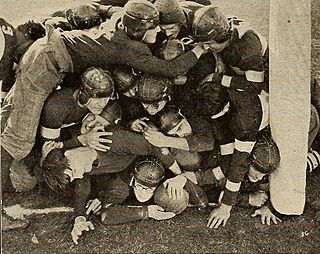
Leet, also known as eleet or leetspeak, or simply hacker speech, is a system of modified spellings used primarily on the Internet. It often uses character replacements in ways that play on the similarity of their glyphs via reflection or other resemblance. Additionally, it modifies certain words on the basis of a system of suffixes and alternative meanings. There are many dialects or linguistic varieties in different online communities.

Mass media include the diverse arrays of media that reach a large audience via mass communication.
Shareware is a type of proprietary software that is initially shared by the owner for trial use at little or no cost. Often the software has limited functionality or incomplete documentation until the user sends payment to the software developer. Shareware is often offered as a download from a website. Shareware differs from freeware, which is fully-featured software distributed at no cost to the user but without source code being made available; and free and open-source software, in which the source code is freely available for anyone to inspect and alter.

Head cheese or brawn is a meat jelly or terrine made of meat. Somewhat similar to a jellied meatloaf, it is made with flesh from the head of a calf or pig, typically set in aspic. It is usually eaten cold, at room temperature, or in a sandwich. Despite its name, the dish is not a cheese and contains no dairy products. The parts of the head used vary, and may include the tongue but do not commonly include the brain, eyes or ears. Trimmings from more commonly eaten cuts of pork and veal are often used, and sometimes the feet and heart, with gelatin added as a binder.

A bento is a Japanese-style single-portion take-out or home-packed meal, often for lunch, typically including rice and packaged in a box with a lid. Outside Japan, similar meals are common in other East and Southeast Asian culinary styles, especially within Chinese, Korean, Singaporean, Taiwanese cuisines and more, as rice is a common staple food in the region. The term bento is derived from the Chinese term biandang, which means "convenient" or "convenience".

A fan or fanatic, sometimes also termed an aficionado or enthusiast, is a person who exhibits strong interest or admiration for something or somebody, such as a celebrity, a sport, a sports team, a genre, a politician, a book, a movie, a video game or an entertainer. Collectively, the fans of a particular object or person constitute its fanbase or fandom. They may show their enthusiasm in a variety of ways, such as by promoting the object of their interest, being members of a related fan club, holding or participating in fan conventions or writing fan mail. They may also engage in creative activities such as creating fanzines, writing fan fiction, making memes or drawing fan art.

The software release life cycle is the process of developing, testing, and distributing a software product. It typically consists of several stages, such as pre-alpha, alpha, beta, and release candidate, before the final version, or "gold", is released to the public.

A yearbook, also known as an annual, is a type of a book published annually. One use is to record, highlight, and commemorate the past year of a school. The term also refers to a book of statistics or facts published annually. A yearbook often has an overarching theme that is present throughout the entire book.
A varsity team is the principal sports team representing an institution like a college, university, or high school. Varsity teams compete against each other during a given athletic season. In the United States, a varsity team is one step above a school's junior varsity (JV) team and composed of more experienced players.
In the United Kingdom, silly season is a period in the summer months known for frivolous news stories in the mass media. The term was first attested in 1861, and listed in the second (1894) edition of Brewer's Dictionary of Phrase and Fable. The 15th edition of Brewer's defined the silly season as "the part of the year when Parliament and the Law Courts are not sitting ". In North America, the period is often referred to as the slow news season.

A press kit, often referred to as a media kit in business environments, is a pre-packaged set of promotional materials that provide information about a person, company, organization or cause and which is distributed to members of the media for promotional use. Press kits are often distributed to announce a release or for a news conference.

A model figure is a scale model representing a human, monster or other creature. Human figures may be either a generic figure of a type, a historical personage, or a fictional character.
Fantasy wrestling is an umbrella term representing the genre of role-playing and statistics-based games which are set in the world of professional wrestling. Several variants of fantasy wrestling exist which may be differentiated by the way they are transmitted, the method in which the storyline is determined, and how the roster is composed.
Beard is a slang term, American in origin, describing a person who is used, knowingly or unknowingly, as a date, romantic partner, or spouse either to conceal infidelity or to conceal one's sexual orientation. The term also refers, in some areas, to anyone who acted on behalf of another, in any transaction, to conceal a person's true identity. The term can be used in heterosexual and non-heterosexual contexts but is especially used within LGBTQ+ culture. References to beards are seen in mainstream television and films, and other entertainment.
A garage kit (ガレージキット) or resin kit is an assembly scale model kit most commonly cast in polyurethane resin.
A season ticket, or season pass, is a ticket that grants privileges over a defined period of time.

In the United States and Canada, a jock is a stereotype of an athlete, or someone who is consumed by sports and sports culture, and does not take much interest in intellectual pursuits or other activities. It is generally applied mostly to high school and college athletics participants who form a distinct youth subculture. As a blanket term, jock can be considered synonymous with athlete. Jocks are usually presented as male practitioners of team sports such as American football, basketball, baseball, lacrosse, soccer, swimming and ice hockey.

In association football, kit is the standard equipment and attire worn by players. The sport's rules specify the minimum kit which a player must use, and also prohibit the use of anything that is dangerous to either the player or another participant. Individual competitions may stipulate further restrictions, such as regulating the size of logos displayed on shirts and stating that, in the event of a match between teams with identical or similar colours, the away team must change to different coloured attire, to avoid clashes.
An equipment manager is the person in charge of equipment used by a business or organization. Their duties include purchasing, maintenance, repair, inventory, transportation, storage, cleaning, and liquidation of equipment. They are responsible for providing the proper equipment for the job, either on-site or off-site. In sports, an equipment manager is a person who is in charge of a sports team's equipment. In professional and collegiate sports, this is usually a full-time job, and includes transportation, laundry, repairs, proper safety fittings, and regular service for the team members.
Eighty-six or 86 is American English slang used to indicate that an item is no longer available, traditionally from a food or drinks establishment, or referring to a person or people who are not welcome on the premises. Its etymology is unknown, but seems to have been coined in the 1920s or 1930s.











